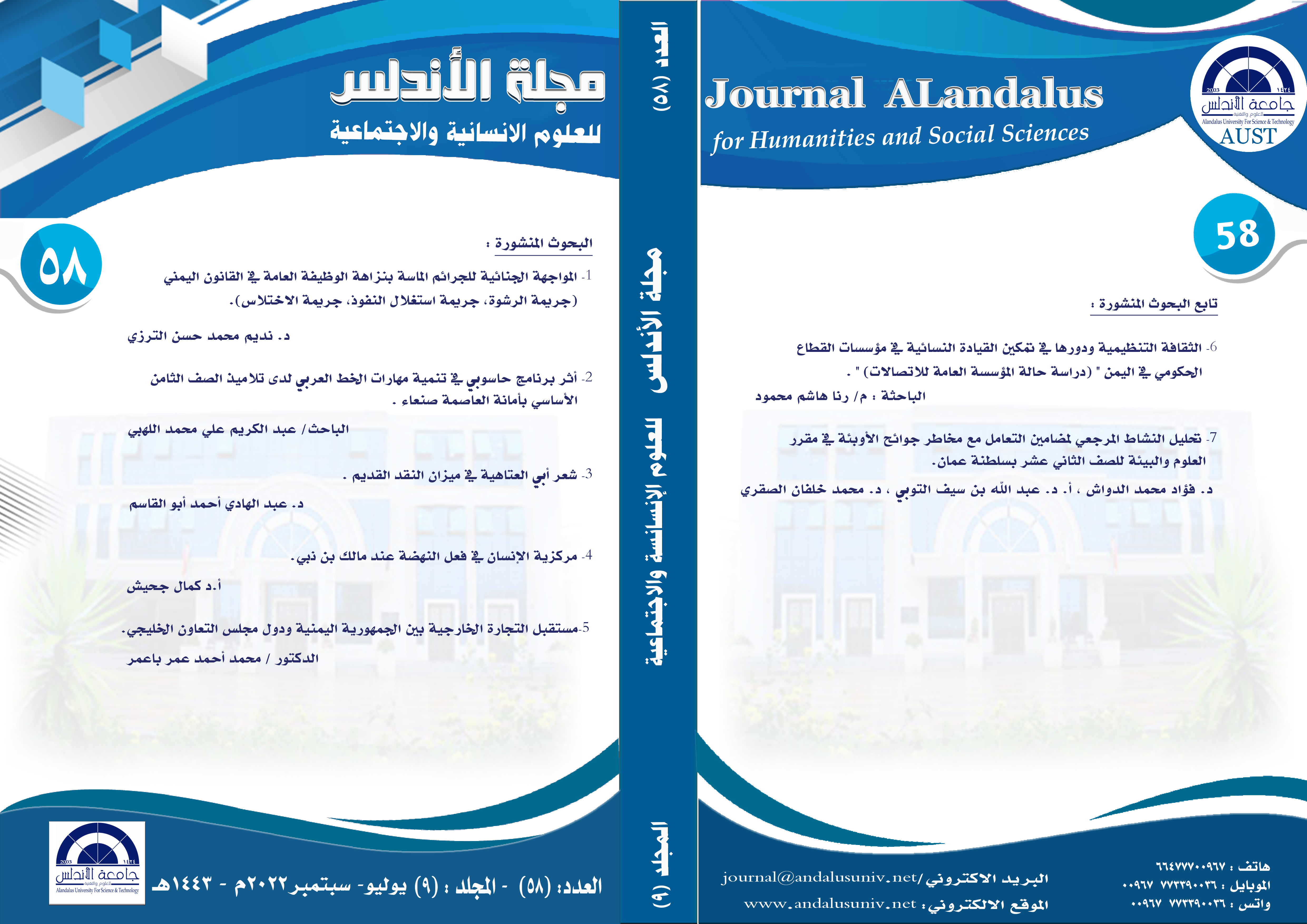The centrality of human in Renaissance according to MALEK BENNABI أ.د كمال جحيش*
Main Article Content
Abstract
From MALEK BENNABI’ perspective, the movement of history is related to the position that man takes in time and space, and if you wish, you will say the position that the person stands in terms of dust and time, and the nature of his interaction with the religious idea. The movement of history is not an imperative movement that imposes its authority on man in any situation. Rather, man is the original subject, and history is nothing but a response to his will. Meanwhile, human transforms from state to state, and from a status to a status. In all this, he sometimes rises to the realm of thoughts. He distinguishes the living thoughts from the dead thoughts, and the dead thoughts from deadly ones. He gets rid of the first and provides the causes of immunity against the second, to make room for living thoughts to play their role, so that will herald the arrival of a new dawn. But he is sometimes overcome by dead thoughts, giving the excuse to invoke deadly thoughts.
Both types of thoughts seek to obscure living thoughts. The first works under the slogan " The best of all possible worlds” . The second complements the symphony of psychological defeat. So he recedes and descends into the world of things. Then the living thought loses its elegance, and the break of dawn is postponed for a while, but hope remains. If the break of the new dawn is postponed, it will be coming. This is Allah ’promise to His servants who understand the Sunnah.
From this point of view, this paper aims to present an approach about what to MALEK BENNABI proposed regarding the centrality of human in Renaissance. The chief support of this approach is the emphasis on three elements that we consider essential. It is the focus of the problem that we want to pose, and we think it is appropriate to ask the question about it. It is the human being and history, and how a person gets rid of the cuffed inertia to reach the ultimate activity, and engage again in a civilized act that brings the nation to the highest ranks of charity. How should human understand history? How can a person regain his position in it? What are the conditions that human reaches to engage in civilized action? These are some of the questions that we would like to answer through this paper. Through it, we hope to examine some of the main pillars upon which Malek BENNABI vision of human vision of is based and his role in renaissance as may be required.
Keywords: Malek BENNABI- human- civilization- history
Article Details
References
- القرآن الكريم.
- الحديث النبوي.
- مالك بن نبي، شروط النهضة(1948)، دار الفكر، دمشق: 1406هـ/ 1986م.
- ========وجهة العالم الإسلامي(1956)، دار الفكر، دمشق: 1423هـ/ 2002م.
- ======== مشكلة الثقافة(1958). دار الفكر، دمشق:1420هـ/ 2000م.
- ===الصراع الفكري في البلاد المستعمرة(1959)، ط3، دار الفكر، دمشق: 1408هـ/1988م.
- ======== تأملات(1961)، دار الفكر، دمشق: 2002 هـ/ 1423م.
- ======== ميلاد مجتمع(1962). ط3، دار الفكر، دمشق: هـ/1986م.
- =====مشكلة الأفكار في العالم الإسلامي(1970). دار الفكر، دمشق: 2002 هـ/ 1423م.
- ======= القضايا الكبرى. دار الفكر، دمشق: 1420هـ/ 2000م
خطة البحث:
تمهيد.
المبحث الأول: الإنسان والحضارة.
المطلب الأول: الإنسان عند مالك بن نبي.
المطلب الثاني: مفهوم الحضارة عند مالك بن نبي.
المبحث الثاني: الإنسان ومساره في مضمار الحضارة عند مالك بن نبي.
المطلب الأول: إنسان ما قبل الحضارة( إنسان الفطرة):
المطلب الثاني: إنسان الحضارة وخصائصه.
المطلب الثالث: إنسان ما بعد الحضارة أو الإنسان القابل للاستعمار.
المبحث الثالث: طريق الإنسان إلى الحضارة.
تمهيد: معيار التحضر.
المطلب الأول: تغيير ما بالنفس.
أ- أولوية الفكرة.
ب- تقديم الواجب على الحق.
ت- الفعالية.
المطلب الثاني: التوجيه الأخلاقي و التوجيه الجمالي أو توجيه الثقافة.
أ- التوجيه الأخلاقي.
ب- التوجيه الجمالي:
المطلب الثالث: توجيه العمل ورأس المال.
المطب الرابع: إعادة الاعتبار إلى التراب والوقت.
أ- التراب.
ب- الوقت.
المطلب الخامس: الفكرة الدينية.
المبحث الرابع: صعوبات في طريق الدخول في الحضارة.
تمهيد: الإنسان بين قهر الاستعمار ومرض القابلية للاستعمار.
المطلب الأول: الأفكار الميتة والأفكار المميتة.
المطلب الثاني: الاستعمار، القابلية للاستعمار والأمراض المرتبطة بهما.
أ- تدمير المستعمَر نفسيا والإشادة بأمراضه.
ب- محاربة كل محاولة للنهوض.
ت- المطلب الثالث: خمود الفكرة الدينية الباعثة.
ث- الخاتمة.

